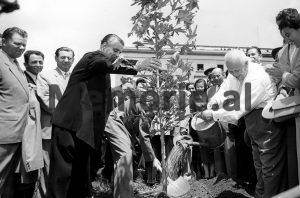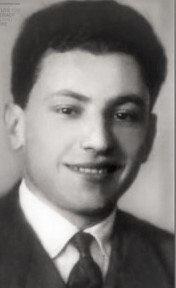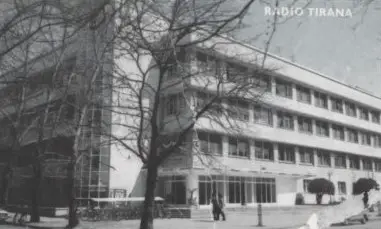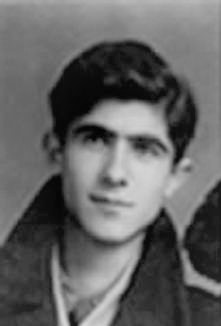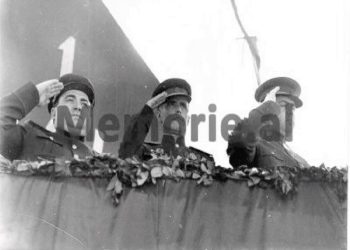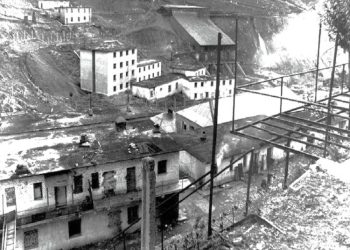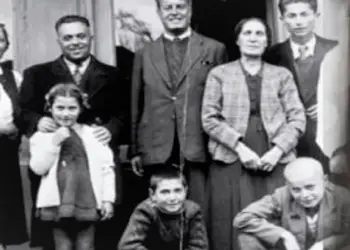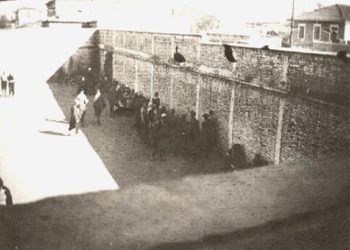From Skifter Kelliçi
Memorie.al / It were the morning of May 20, 1994, when I entered the office of Skënder Buçpapaj, then General Director of Albanian Radio and Television. And not without purpose. I reminded him that, on May 28, it was 15 years since the shooting of Fadil Kokomani and Vangjel Lezho, two of the best journalists of Radio – Tirana, since its creation, as well as Xhelal Koprencka, another political prisoner, who was shot together with them. I added that, after the fall of the dictatorship, it was the occasion for this anniversary to be commemorated with a special ceremony.
A cultured man, a well-known poet and publicist, he thanked me a lot and together, the next day, we drew up the plan for organizing a solemn meeting, in cooperation with the Committee of the Politically Persecuted. And so it was.
Meanwhile, I, together with Piro Naçen, a well-known journalist and radio columnist at Radio-Tirana in the 50s-60s, both of us, close friends of Fadil Kokomani and Vangjel Lezho, prepared a statement, which then became the basis of this article, dedicated to them.
It was a touching meeting, dedicated to these martyred journalists, as well as to their friend, Xelal Koprencka, who, for their invincible attitude, held during the 15 years that had passed from 1963 to the day of the shooting, in prisons and concentration camps, at that ceremony, the President of the Republic awarded him the decoration, “Martyr of Democracy”.
In addition, both Radio-Tirana and RTS prepared special programs dedicated to them. On this occasion, I also published a long article in the “Rilindja Demokratike” newspaper.
Who were Fadil Kokomani and Vangjel Lezho?
“Dear Judicial Panel,
The firefly on beautiful summer nights seems to illuminate the whole world with its light: in fact, it cannot illuminate even a blade of grass. The same thing happened with the indictment of this judicial process. She faded…! The film-like filming of all the investigative scenes brought two big, bloated and powerful files here in front of you, which, if you edit them, only the one for which we were sentenced together with Vangjeli…”!
If I didn’t know that these lines were taken from one of the most tragic and shocking judicial processes that ever took place during the terrible communist regime in our country (May 17, 1979), I would judge that, some talented writer, has managed to put such touching words into the mouth of one of his imprisoned characters.
But, in fact, it is not like that at all. In this case, as in other cases that I will present to the readers of this cycle, the fantasy of any writer has never worked, to be envied. Those lines were written in one of the cells of the New Prison of Tirana by the political prisoner, Fadil Kokomani, together with his friend, Vangjel Lezho, as they both knew that, apart from being shot, nothing else awaited them.
You are surprised by the coolness, courage and bravery of these two prisoners, who, even in those difficult moments, not only wrote over 20 pages representing their defense before the jury, but also wrote them with inspiration, talent, with a whipping and unmasking language, which made the members of the jury, according to the testimonies of those present in the courtroom, remain frozen and did not dare to interrupt their magnificent lecture.
What had happened, why was this judicial process taking place, why Fadil Kokomani and Vangjel Lezho, two of the most talented journalists of Radio-Tirana, until 1963, when they were arrested and sentenced to 25 years in prison, were being re-sentenced this time by firing squad, after they had served about 16 years of severe imprisonment in concentration camps. Together with them is Xelal Koprencka, another political prisoner.
Fadil Kokomani and Vangjel Lezho were two friends who formed a very close friendship during the years of studying journalism in the higher schools of the Soviet Union.
Fadili was born in Durrës in 1933, in a family with patriotic traditions. Vangjeli was born a year ago in Fier, in a poor family. Fadili had finished high school in his hometown and was sent to study journalism in Leningrad. Two years later, after graduating from the Pedagogical School in Elbasan, in Leningrad, Vangjeli would also go for the same studies. The acquaintance between them, which continues to deepen even more, even though Vangjeli, for health reasons, is forced to continue his journalism studies in Moscow.
This friendship becomes even stronger in Tirana. Fadili, after finishing his studies, was appointed in 1957 as a journalist at Radio Tirana. Two years later, Vangjeli also started working at Radio.
I have known both of them closely. In a literary competition at the University of Tirana in 1958, I won a prize with a story, and Fadili, who was preparing the “Youth Show”, invited me to an interview. It was the time when I had just started auditioning as a radio speaker. And it was Fadili, together with the well-known speaker, Vera Zheji, who encouraged and encouraged me to work hard at the microphone.
Somewhat short, but with a compact body, a smooth face, always smiling, where a straight nose and brown eyes stood out, Fadili was just as cheerful and frank, especially in conversations, where he immediately made it about himself, especially with the broad culture in the field of literature and music. And he poured all this culture into his radio shows, some of which I had the chance to read as a speaker on the microphone. It must be said that they were of a very high artistic level, alongside the programs prepared by Piro Naçe, Ymer Minxhozi, Liri Çeli, Maqo Afezolli, Kadri Zotria, and other journalists of Radio Tirana.
Even Vangjeli, upon starting work in 1959, in the culture editorial office, together with Fadil, proved that he had talent. He was tall, lean, but flexible, with a sweet face, a little sallow, where black and lively eyes sparkled.
Both were among the first journalists at Radio Tirana who had a journalist’s degree, a rare phenomenon until then in this institution. Both were the first to look for new ways to raise the artistic level of radio shows, where there were still weaknesses.
There was also a reason: They came from a country like the Soviet Union, where the level of radio was high, especially after the 20th Congress, where Stalin’s cult of the individual was condemned and literature, arts and journalism had a very big jump qualitative. I also noticed this, since, still a final year student at the University of Tirana, for Language and Literature; I had begun to read the Soviet press with attention.
Above all, in the field of literature and arts and especially cinematography, after the congress in question, a fierce fight against dogmatism had begun, which took them to high world levels (remember only the novella “The Fate of Man” by Sholokhov, which was screened and shown successfully in many countries of the world, even in the USA, as well as the other films “The Wings Travel”, “Ballad for the Soldier”, “The Forty-Fifth”, “Clear Sky”, etc., which were awarded prizes at well-known international festivals).
Influenced by these phenomena experienced during the years of study, Fadil Kokomani and Vangjel Lezho brought a lot of news to their broadcasts, which we are not able to judge, because, being radio material, they have not been preserved . But it is known that Fadili, cultivated with rare mastery, the description, reportage and above all “musical novels”, dedicated to the biggest figures of world music, which were very liked by our listeners.
Among them, I also remember a very interesting show that he, together with another journalist, Kadri Zotria, prepared for the great Italian tenor, Tito Skipa. In 1959, on the occasion of the November holidays, he visited our country and, among other things, expressed on Fadili’s microphone that he was proud of his Albanian origin, starting from his last name, Skipa (that is, skip -Albanian).
Even Vangjeli followed Fadili’s path, especially in children’s shows. It is important to emphasize that both found the support and support of the then director of Radio Tirana, Petro Kita and his deputy, Ymer Minxhozi, who appreciated them for their artistic level and professional maturity.
But, in January 1961, Thanas Nano, the former director of the Albanian Telegraphic Agency, and then deputy director of the Propaganda Directorate in the Central Committee of the PPSh, was appointed director of Radio Tirana, a rude, cold man, pedantic and conservative. It was the period when, after the Moscow meeting of 81 Parties, in November 1960, Enver Hoxha, in order to preserve the “imperial” throne, broke away from the Soviet Union.
After a period, the liberalism that appeared in our literature, arts, and even in journalism, that is, in Radio Tirana’s programs, slowly began a censorship of every innovation on the radio, which was very diligently restrained by Thanas Nano.
However, in this period, Fadil Kokomani wrote the description “Shungullon lugu i Malësë”, which left an impression on the listeners, was broadcast and rebroadcast and even won an award in a radio competition of Eastern countries.
It was Fadili again in this period, who started the column: “People’s University of Radio”, with various shows from different fields of science, culture, art, which became one of the most popular programs of Radio Tirana, a column that was broadcast every Tuesday and Thursday, at 20.30-21.00.
Precisely, in the framework of this column, he started the cycle “World literature phenomena of the 20th century” and continued to write, apart from musical novels, other shows in this field, because music was his passion. Fadili had attended a singing course at the Leningrad Conservatory and continued another course in Tirana, with the well-known soprano, Marie Kraja, who proved that he could become a good tenor.
Both Fadili and Vangjeli were very fond of fiction. They constantly read about 20-30 pages a day. Fadili, in addition to Russian, which he mastered perfectly, also learned Italian.
Both cooperated with other press bodies. For example, several journalistic creations belong to them, among which, the reportage: “Në kilometer 10”, published in the magazine “Nëntori”, no. 10, and 1961.
In order to understand what realistic tendency permeated their creativity, it is enough to quote the last fragment of this description:
“Years will pass, when the construction scaffolding will be removed from the new houses and the last truck with the waste of construction materials will leave at the corner of the road. And, however, the facades will still be moist, the countless windows with joyful and happy eyes, will be filled with light. So, this is the picture of our life. It is neither a symbol, nor an allegory, nor an analogy. It must be understood as it is…”!
The last phrase, in my opinion, with a clear meaning, seems to have escaped the editors. Apparently, Fadili and Vangjeli did not write those words by chance. This was their credo. And, if they had lived, in their works they would have been able to analyze this creed more deeply with their talent, which they did not lack, but which cruel and premature death did not allow them to express it any longer.
Meanwhile, Fadil Kokomani also published articles in other press bodies. Not much, because the intensive work in the Radio prevented him. But, among his writings, I am mentioning the articles “Madame Butterfly and our artists”, (“Voice of Youth”, April 19, 1961), “Ludvig Van Beethoven”, (“Voice of Youth”, July 5, 1961), “In street”, (“Voice of Youth”, October 21, 1961), “Singers of the Highlands”, (“Voice of the People”, June 26, 1960), the story “The song brought us together”, “Voice of Youth”, March 4, 1961 and other creations in “Ylli” magazine.
Although he wrote few stories, Fadili showed that he had all the possibilities to become a serious writer, because, among other things, he had fluent language, skillful and natural dialogue, descriptive power, as evidenced by this fragment from the story “Malesorja e small”, (“Voice of Youth”, May 31, 1961), which I am quoting below:
“The last buds of autumn meanwhile melted, dissolved at once by the first ray of the morning sun, and licked my still happy eyes. I browsed Migjeni’s work and from time to time, to cheer myself up, I looked into the depths of the mountain, where, among the huge, bleaching stones, a black spot appeared – the cave of the brave…! The silence around, the green forests where the poet had wandered, immersed in the world of humming sounds, the sounds of fascinating nature, the breezy freshness, as if they were blowing me…”!
Fadili, while working at Radio Tirana, tried, not without success, to write plays as well. In 1962, in the show “Theatre on the Microphone”, a drama of his was broadcast, dedicated to the outstanding patriot Mihal Grameno. Unfortunately, neither it, nor any other creation of him and Vangjeli, after their arrest, was preserved in the audio library of Radio Tirana.
Both close friends lived in difficult conditions. Fadili in a cold room in Radio and Vangjeli, in a wretched hotel in the center of Tirana, together with his wife, a pleasant Muscovite named Ina, who had given birth to a child and, as I have seen them myself, felt very closely in that environment. In addition, the wife was a student and had to take care of the child and study. However, both were optimistic, as was Fadili, who in the summer of 1960 was expecting to visit the Soviet Union.
Both friends had a very realistic conception, not only about literature, but also about life. I realized this when in August 1959, after finishing my studies at the University of Tirana; I was appointed a journalist at Radio. I was already a colleague with Fadil and then also with Vangjeli. My wish was to become a journalist like them, especially like Fadili. And so it happened. I started to follow his creativity and benefit from it. As we will see in the second part, recognition also became greater, more open.
How I got even closer to Fadil…!
I don’t forget February 1960, when Fadil and I were assigned to do the so-called physical work in the hills of Tirana, where the Sanatorium is built. It was the second month that this Chinese method had started to be applied, which would serve, supposedly, to shake and dishearten the administration, since it, too, had to know in practice what the work in production was.
During January of that year, the prime minister himself, Mehmet Shehu, did the physical work no more and no less, about whom the well-known poet and journalist, Dritëro Agolli, had also published a report in “Zërin e Populli”.
And lo, one morning we were sitting somewhere on a bank near the building of the Sanatorium of Tirana, which was nearing completion, and we were eating what we had taken with us. I clutched in my hand a loaf of black, curdled bread, which I had not been able to toast in my haste.
– But what bread! – Fadili burst out without waiting.
– And when, after so many years of writing, we lie that we are building socialism! To be honest, I was surprised. It was the first time during those three years that I had known Fadil and I had never heard him express him in this way, so I replied:
– What to do, we go through the same difficulties that the Soviet Union went through in the 30s. Do you remember how Mayakovsky wrote in a poem about the worker who squeezes the bread in the palms of his hands to remove the moisture?
– Nice comparison you are making me! Do you realize that we are in 1960?!
So he started talking to me more loudly, about the difficult life we were going through, directly blaming Enver Hoxha and those around him. I was put in a difficult position. Fadili came from a communist family. In addition, he had a brother who was a major officer. Memorie.al
The next issue follows




